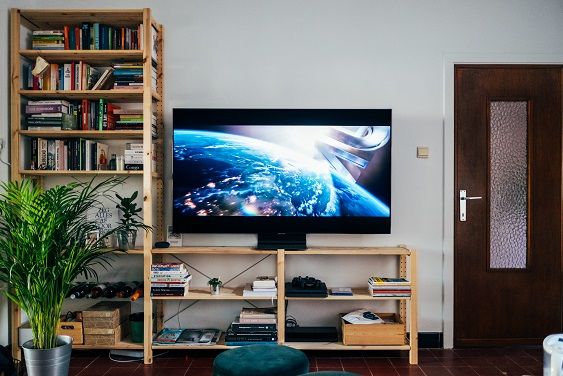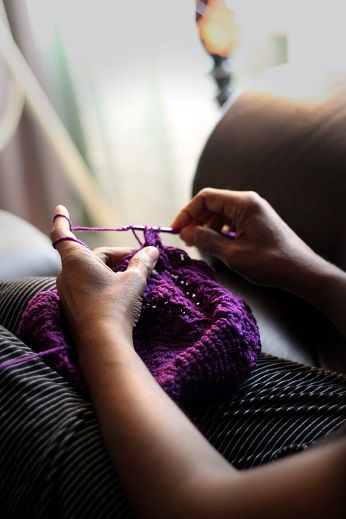General tips

General tips for communicating with someone who is living with dementia
- Think about the environment and choose a good place to talk for example it should be quiet, with good lighting and no background noise such as the TV or radio
- Make sure you have their full attention before you start
- Try to be on the same level as the person you are trying to communicate with, don’t stand over them
- Sit as close as you can to them without invading their personal space
- Make sure your body language is open and relaxed
- Ensure you have enough time to spend with the person and remain calm
- It is a good idea to prepare what you are going to talk about
- Try to use the time of day when they are more able to communicate for example some people are better in the morning
- Make sure you choose a time when they are not hungry, tired or in pain
The way you speak is really important
- Speak clearly and calmly, at a slightly slower pace than you would usually use
- Allow time between sentences so that they can process the information and respond if they want to. This might seem like an uncomfortable pause to you, but it is essential for helping them to communicate
- Use short simple sentences which are easy to understand
- Don’t raise your voice or speak sharply
- Use a conversational style rather than asking question after question as this could be perceived as an interrogation
- Don’t talk to the person in a condescending way as if you were talking to a young child
- Be patient and respectful
- If misunderstandings and mistakes happen, try to laugh together about them as humour can help to relieve the pressure and stress you may be feeling. However, be sensitive to the person’s response and don't laugh at them
- Always include the person in any conversations you may be having with others in their presence. This is essential to help a person with dementia to keep their sense of identity and feel they are valued. It is also important in helping to reduce feelings of exclusion and isolation
What you say is also very important
- Avoid asking too many questions, or complicated questions. People living with dementia can become frustrated or withdrawn if they can't find the answer
- Although it is important to give someone a choice, giving too many options to choose from can be confusing and frustrating therefore try to introduce one idea at a time
- Ask questions one at a time, phrasing them in a way that requires a ‘yes’ or ‘no’ answer rather than asking them what they would like to do. For example, you could be specific about an activity ‘would you like to go for a walk?’ Or you could phrase the question in a way that gives them a choice ‘Would you like a drink of water or orange juice?’
- Breaking down what you are trying to say into smaller chunks can make it easier for someone to understand
- If you think the person hasn’t understood what you have said then you should rephrase it rather than just repeat what you said
- If they become tired easily it is probably best to have short, regular conversations rather than infrequent, long ones
- As their dementia progresses, they may become confused about what is true and not true. If they say something that you know is not true try to work out what the meaning is behind what they have said rather than contradicting them. They might say that they need to go and pick the children up from school. They may say this because this something they always did and they want to feel useful, or make a contribution to the family and be involved. It may be helpful to find activities to stimulate them and keep them occupied
Specific Advice for coping with restrictions due to Coronavirus
1. Have a routine
Having a daily routine helps to give a sense of purpose and makes spending time indoors easier. Having a sense of purpose may also bring more meaning to days that might otherwise seem long and empty. Having a familiar routine can also help to reassure the person and ease their anxiety, especially if they become concerned and worried by news stories. The following tips may help:
- Agree a daily schedule and put it up somewhere that it can be seen easily
- Make a ‘To Do’ list to tackle all the jobs you have been putting off doing
- Make your daily routine and tasks simple to make them more manageable and achievable
- Try to focus on one thing at a time, breaking each task down into simple steps
2. Keep Active
Even though there are many restrictions to normal life, keeping active will help people with dementia live better and remain more independent for longer. It’s more important than ever to stay active as even small amounts of activity or exercise can make a big difference to your overall health and wellbeing
Keep active while staying safe, focusing on being: -
- physically active – by doing exercises either indoors or outdoors (link to physically active section of website)
The restrictions due to the Coronavirus are making it harder to stay active. It may not be possible to get out and about as much as usual and the situation may be making you feel worried, anxious or frustrated. There are lots of ways to build activities into your daily routine. For example, you can do some simple activities like heel raises while the kettle boils, getting from standing to sitting when the TV adverts are on, or bicep strengthening exercises using cans of beans when waiting for the microwave to ping
If they are able, encourage them to help with preparing food, cooking and other household tasks. Also consider different forms of exercise such as dancing along to their favourite music. The British Gymnastics Foundation has developed a programme of seated activities for people living with dementia. You can download it here Love to Move and try some of the activities
You are allowed to go outdoors to exercise as long as you stay away from people who are not in your household. Going for a walk together in the fresh air will help to lift your spirits and make you feel better
Gardening is a good activity including weeding and planting seeds and enjoying watching them grow
- mentally active – by trying a new activity or maybe learning a new skill
When you are choosing activities, try to make sure that they are based on their interests and preferences. Some ideas to try are:




- reading – books, magazines or newspapers
- listening to audio books
- jigsaws
- listening to music
- using apps to play games
- knitting or crocheting
- watching TV programmes or favourite films
- listening to the radio
You could also use a tablet or mobile device to download creative and activity apps from AcToDementia which is a useful independent website
- socially active – by staying connected to those close to you
One of the hardest things about the lockdown is feeling alone. Connections with other people are essential to make us feel safe and secure
You can still chat to your neighbours or a small number of friends from your front or back door or garden, through an open window, or over the fence while obeying the social distancing rules
Keeping in touch with friends and family who can’t visit is important for your mental health and will help you to stay positive. You can do this by phone, post, text, email or a video call. Use whichever method is most comfortable for you and the person with dementia. There are Apps and social media platforms that make it easy to use video calling such as Skype, WhatsApp and Zoom. Being able to see someone’s face as well as hearing their voice can make you feel closer
You could build a regular time every day into your daily routine for catching up, which will give you something to look forward to
Joining an Online community or forums can be a useful source of support as you will be able to talk to lots of other people who are going through similar things to you. Dementia Diversity’s PALs (Peer Assisted Living) Community is a good example of this
3. Follow good hygiene
Keeping your hands clean and following good respiratory hygiene are crucial in helping to stop coronavirus spreading. This includes:
- Washing your hands often with soap and water or, if this isn’t possible for example when you are out and about use a hand sanitiser or anti-bacterial wipes
- coughing or sneezing into a tissue or if you don’t have a tissue use your elbow, never your hands
- putting used tissues in the bin immediately
- not touching your face
For more information checkout our FAQ section